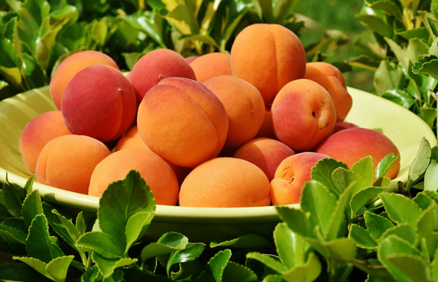Bi'ur Ma'aserot and Viduy Ma'aserot

This articles talks about a rare mitzvah we do twice in 7 years, in the 4th and 7th year of the shmita cycle (5779,5782).
For the practical Halachot and visual guide of Bi'ur Ma'aserot and Viduy Ma'aserot, see here.
The Torah commands us: "You shall set aside every year a tenth part of all the yield of your sowing that is brought from the field ... Every third year you shall take out every tithe of your crops in that year and set it down within your cities. Then the Levite, who has no hereditary portion as you have, and the stranger, the fatherless, and the widow in your settlements shall come and eat their fill, so that the L-rd your G-d may bless you in all the enterprises you undertake" (Devarim 14: 22, 27-28).
From here we learn that we need to remove the ma'aserot from our homes every three years and deliver them to all the people the Torah indicates they are meant for. Our Sages teach us that the time we perform this mitzvah is on Pesach, on the fourth and seventh year of the shemita cycle. This is the mitzvah of bi'ur ma'aserot (lit. "removing the tithes").
Sefer HaChinuch (mitzvah 607) provides an explanation for this mitzvah. The ability to speak is what distinguishes man from beast and there are some who are more careful with their words than they are with their actions. Since terumot and ma'aserot are important but difficult to perform, the Torah commands that we declare that we separated them properly and gave them to the proper recipients.
The Torah wants us to make sure we have a clean slate every three years. At this time, we verify that all the terumot and ma'aserot were indeed separated and appropriated accordingly: to the Kohen, Levi, poor person, or eaten in Jerusalem. Tevel, untithed produce, is always forbidden to eat. But once every so often we need to closely examine our homes and ensure that we don't have any tevel or dough from which challah was not taken. This somewhat resembles our preparations for Pesach, where we do an annual deep clean of our homes and make sure that they are free of even a crumb of chametz (or dust…). And on Pesach, we start afresh with an organized, squeaky clean, chametz-free home.
There are two components of this mitzvah: bi'ur and viduy, somewhat similar to bi'ur chametz, which includes burning and destroying the chametz and then declaring that any other chametz is ownerless or nullified. In bi'ur ma'aserot we remove the gifts from our domain, which is accomplished by giving the gifts to the appropriate destinations or by destroying them (when they cannot be eaten, like challah and ma'aser sheni. The coin used to transfer ma'aser sheni sanctity also needs to be detroyed). The viduy includes saying verses from parashat Ki Tavo (Devarim 26:12-15). We essentially say that we performed our duties as mandated and ask G-d to bless us and our land.
Why is it called viduy?
Rabbi Joseph Dov HaLevy Soloveitchik (in the Covenant of the Patriarch, in: The Rav Speaks, part of the Chamesh Derashot, given at the Mizrachi Conferences from 5022-5027, 1962-1967) asks why our Sages considered reading this parasha "viduy," confession? In the viduywe confess our sins "ashamnu, bagadnu, gazalnu";
"We have transgressed, we have acted perfidiously, we have robbed." The confession of viduy ma'aserot is exactly the opposite: we declare our good deeds—that we fulfilled G-d's will and separated and appropriated our tithes in their entirety. Can this possibly be considered viduy?
Rabbi Soloveitchik explains that teshuva contains two aspects: the ability to admit guilt for our actions and see ourselves as lowly and degraded; and conversely, to purify and elevate ourselves and reach the highest of heights. Admission of sin lacks significance if we do not aspire to rectify ourselves or believe that we are capable of sanctifying ourselves. If we are not thoroughly convinced that we can indeed reach the summits of human greatness, we will lack the ability to take responsibility for our negative actions and will have no motivation to change. For this reason, the verse "I have obeyed the L-rd my G-d; I have done just as You commanded me" (Devarim 26: 14) is also part of the confession. Here man proves that he can fulfill G-d's will, and by doing so admits that the demands placed upon him are also just. And if he does fail, then he can admit his shortcomings as well. (Rav Soloveitchik then goes on to compare this to the positive aspects of the Mizrachi Movement and its accomplishments, and then the points it needed to improve.)
Is this mitzvah relevant today in the USA?
In practice, the mitzvah of bi'ur is also relevant today to those who buy imported produce from Israel that are subject to tithing—for these products, one needs to ensure that they are tithed.
Note that most of the fruits and vegetables that are exported from Israel are not tithed in Israel. For this reason, whoever has the merit of buying Israeli produce should take terumot and ma'aserot without a blessing (since there are also opinions that such produce is exempt from tithing). Taking terumot and ma'aserot is relatively simple and doesn’t take more thana minute, after you learn what to do (for a comprehensive explanation and the step-by-step procedure of separating terumot and ma'aserot, see our website: www.toraland.org.il/en).
There are 20 mitzvot that relate to terumot and ma'aserot: six positive injunctions (one of them being bi'ur ma'aserot) and 14 negative injunctions. Jews living in the Diaspora who buy Israeli produce and separate terumot and ma'aserot properly have the opportunity to perform all of these mitzvot! This is besides supporting Israel and Israeli-Zionist agriculture. Furthermore, according to the Chatam Sofer, produce grown in the Land of Israel contains a special sanctity!
Back to bi'ur ma'aserot: one needs to also make sure that there aren't any products at home from which challah has not been taken and that the challah was burned, buried, or disposed of properly.
viduy ma'aserot
Viduy ma'aserot is not obligatory today, even in Israel, in light of the phrase: "ואמרת לפני ה' אלוקיך" "And you shall declare before G-d your L-rd." That is, the viduy is supposed to be said in the Beit HaMikdash, which to our great sorrow does not exist today. Moreover, since today we are all ritually impure due to contact with the dead, Kohanim cannot eat teruma and ma'aser sheni cannot be eaten in Jerusalem. So we cannot give the gifts in their most ideal form. Nevertheless, the viduy is customarily recited on the last day of Pesach, before or after mincha.
Whoever bought Israeli produce over the past three years and separated from it terumot and ma'aserot can certainly recite the viduy. Even those who did not buy any Israeli produce can join the community and say the viduy as well.
When serving as the rabbi of Ponovezh in 5653 (1893), the Aderet, Rabbi Eliyahu David Rabinowitz Teomim, wrote the manuscript Acharit HaShanim (the end of years) about bi'ur and viduy ma'aser. He is the first to revive the mitzvah of saying viduy ma'aser. Eight years later, in 5661 (1901), the Aderet made Aliya and served as the rabbi of Jerusalem, where he instituted saying parashat haviduy, in remembrance of the Beit HaMikdash. He also suggested that the Torah reading on the eighth day of Pesach abroad (even when it doesn't fall out on Shabbat) on years of bi'ur should begin from aser te'aser (Devarim 14:22) and not from kol bechor, as usual (Devarim 15:19). In this way the verses that discuss bi'ur ma'aserot will be included in the public Torah reading.
The mitzvah of bi'ur includes saying the viduy bi'ur ma'aserot out loud. In Israel, the viduy should be recited on the last day of Pesach, before or after mincha. Note that the Mishna (Sotah 7:1) and Shulchan Aruch (YD §331, 143) state explicitly that viduy ma'aser may be recited in any language, not only in Hebrew.
The text for viduy ma'aserot, which appears in parashat Ki Tavo (Devarim 26: 12-15), is as follows:
כִּ֣י תְכַלֶּ֞ה לַ֠עְשֵׂר אֶת־כָּל־מַעְשַׂ֧ר תְּבוּאָתְךָ֛ בַּשָּׁנָ֥ה הַשְּׁלִישִׁ֖ת שְׁנַ֣ת הַֽמַּעֲשֵׂ֑ר וְנָתַתָּ֣ה לַלֵּוִ֗י לַגֵּר֙ לַיָּת֣וֹם וְלָֽאַלְמָנָ֔ה וְאָכְל֥וּ בִשְׁעָרֶ֖יךָ וְשָׂבֵֽעוּ: וְאָמַרְתָּ֡ לִפְנֵי֩ ה֨' אֱלֹהֶ֜יךָ בִּעַ֧רְתִּי הַקֹּ֣דֶשׁ מִן־הַבַּ֗יִת וְגַ֨ם נְתַתִּ֤יו לַלֵּוִי֙ וְלַגֵּר֙ לַיָּת֣וֹם וְלָאַלְמָנָ֔ה כְּכָל־מִצְוָתְךָ֖ אֲשֶׁ֣ר צִוִּיתָ֑נִי לֹֽא־עָבַ֥רְתִּי מִמִּצְוֹתֶ֖יךָ וְלֹ֥א שָׁכָֽחְתִּי: לֹא־אָכַ֨לְתִּי בְאֹנִ֜י מִמֶּ֗נּוּ וְלֹא־בִעַ֤רְתִּי מִמֶּ֙נּוּ֙ בְּטָמֵ֔א וְלֹא־נָתַ֥תִּי מִמֶּ֖נּוּ לְמֵ֑ת שָׁמַ֗עְתִּי בְּקוֹל֙ ה֣' אֱלֹהָ֔י עָשִׂ֕יתִי כְּכֹ֖ל אֲשֶׁ֥ר צִוִּיתָֽנִי: הַשְׁקִיפָה֩ מִמְּע֨וֹן קָדְשְׁךָ֜ מִן־הַשָּׁמַ֗יִם וּבָרֵ֤ךְ אֶֽת־עַמְּךָ֙ אֶת־יִשְׂרָאֵ֔ל וְאֵת֙ הָאֲדָמָ֔ה אֲשֶׁ֥ר נָתַ֖תָּה לָ֑נוּ כַּאֲשֶׁ֤ר נִשְׁבַּ֙עְתָּ֙ לַאֲבֹתֵ֔ינוּ אֶ֛רֶץ זָבַ֥ת חָלָ֖ב וּדְבָֽשׁ
When you have set aside in full the tenth part of your yield—in the third year, the year of the tithe—and have given it to the Levite, the stranger, the fatherless, and the widow, that they may eat their fill in your settlements, you shall declare before the L-rd your G-d: “I have cleared out the consecrated portion from the house; and I have given it to the Levite, the stranger, the fatherless, and the widow, just as You commanded me; I have neither transgressed nor neglected any of Your commandments: I have not eaten of it while in mourning, I have not cleared out any of it while I was unclean, and I have not deposited any of it with the dead. I have obeyed the L-rd my G-d; I have done just as You commanded me. Gaze from Your holy abode, from heaven, and bless Your people Israel and the soil You have given us, a land flowing with milk and honey, as You swore to our fathers.”
Some add the following mishna (Ma'aser Sheni 5:13):
השקיפה ממעון קדשך מן השמים' - עשינו מה שגזרת עלינו, אף אתה עשה מה שהבטחתנו, 'השקיפה ממעון קדשך מן השמים וברך את עמך את ישראל' - בבנים ובבנות, 'ואת האדמה אשר נתת לנו' - בטל ומטר ובולדות בהמה, 'כאשר נשבעת לאבותינו ארץ זבת חלב ודבש' - כדי שתתן טעם טוב בפירות
"Gaze from Your holy abode, from the heavens." We have done what You decreed upon us, so too You do what You promised us: [to] "gaze from Your holy abode, from the heavens, and bless Your nation, Israel," with sons and daughters. "And the land You have given us" bless with dew and rain, and [bless] the offspring of [our] livestock. "Just as You have sworn to our forefathers, a land flowing with milk and honey" so that You will give a pleasant taste to the fruit.
After reading the viduy, recite the following prayer:
יהי רצון מלפניך ד' אלקינו ואלוקי אבותינו, כשם שזכינו לקיים מצוות ביעור מעשרות ווידוי מעשרות, כן יזכנו הקב"ה לקיים מצוות הפרשת תרומות ומעשרות מהתורה, וכן מצות ביעור מעשרות מן התורה, בביאת גואל צדק ובבניין בית המקדש במהרה בימינו, אמן, כן יהי רצון
May it be your will, G-d, our L-rd and the L-rd of our forefathers, that just as we have merited to perform the commandment of bi'ur ma'aserot [removing tithes from our possession and delivering them to their proper destinations] and viduy ma'aserot [reciting the tithing confession], so too will G-d give us the merit to perform the commandment of separating terumot and ma'aserot as a Torah obligation, and to perform the commandment of bi'ur ma'aserot as a Torah obligation, with the coming of the righteous Redeemer and the rebuilding of the Holy Temple, speedily and in our day, amen. May it be Your will.
For a detailed Halachic guide, For Pesach 5779, and a visual guide See here.




